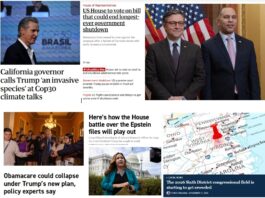From FWIW Virginia:
What issues are Virginia Democrats running on?
Analyzing the issues & messaging trends Dem candidates are pushing across the Commonwealth
|
|
Welcome to FWIW Virginia, where we analyze digital spending trends on both sides of the aisle in the 2021 Virginia statewide and legislative elections. Each week, we look at how campaigns are investing in digital engagement and the online tactics they use to reach voters across the Commonwealth. Was this email forwarded to you? Click here to subscribe.
As delegate races around the commonwealth are heating up, candidates are racing to define themselves and the issues they’re running on. In previous editions, we’ve covered how Republican candidates are focused on hot-button culture war issues like Critical Race Theory to rally their base, but what issues are Democratic candidates using to frame the November election? We take a look in this week’s edition of FWIW Virginia.
But first…
2021 by the Numbers
FWIW, here are the top 10 spenders specifically targeting Facebook users in Virginia last week.
A notable spender targeting Virginians on Facebook this week is Stand for Children, a 501(c)(4) group that advocates for education + child welfare. Of the $83,086 the organization spent nationally on Facebook last week, nearly 46% of that was targeted towards Virginians.
The group is running digital ads nationally selling Joe Biden’s American Jobs and Families Plan as congressional Democrats begin to move their legislation. While these ads have a national focus, state elections are becoming increasingly nationalized, and selling voters on kitchen table policies supported by Democrats nationally could have an impact on the overall political environment in Virginia come Election Day.
And here’s how total digital ad spending (national and local targeting) stacked up this week in Virginia’s statewide races.
We’re also tracking cumulative digital ad spending across the state, including spending from candidates for statewide offices, competitive or potentially competitive Delegate races (any race under a 15 point margin in 2019), and partisan outside groups with spending specifically targeted at Virginia elections.
Democrats continue to outspend Republicans on digital ad spending on Facebook + Google, still driven by the dominant online spending from Terry McAuliffe’s campaign. This week, McAuliffe’s campaign crossed the $500,000 mark in total digital ad spending for the general election, and outspent Youngkin on Facebook and Google by nearly $100,000 from July 26th – August 1st.
Democrats’ issues of the day
After the 2019 elections in Virginia, Republicans were swept completely out of power in Richmond for the first time since 1993, and heading into the 2021 elections, their electoral incentives are much different from Democrats. Although GOP gubernatorial nominee Glenn Youngkin is trying his best to run as a pro-business moderate, his party’s grassroots are focused on culture war issues like Critical Race Theory. This shift reflects the party’s trend towards red meat nonsense at the national level.
Democrats, on the other hand, simply need to maintain their hold on statewide offices + the House of Delegates in an increasingly Democratic-leaning state – and this means selling the accomplishments of their trifecta to voters across the Commonwealth. Although paid digital advertising from Democratic delegate candidates has been limited so far, the ads we’ve seen have focused on delegates’ accomplishments in the majority.
As we covered last week, Facebook ads from Democratic Del. Dawn Adams (HD 68) focused on Virginia being ranked as the #1 state to do business under the Democratic trifecta, while ads from Del. Nancy Guy (HD 83) touted her advocacy for the electrification of school busses + public transit to slow climate change, a key issue in her coastal district.
We also picked up new spending from Del. Chris Hurst (HD 12), whose campaign spent around $1,500 on Facebook and Google ads from July 26th – August 1st with 15-second video ads touting his accomplishments, including Medicaid Expansion, increasing school funding, and bringing more broadband and Amtrak access to his district.
While we haven’t seen how most other Democratic delegate candidates will prioritize issues in their paid digital media, we thought we’d take them at their own words – and scan which issues they’re highlighting on their campaign websites. We took a look at the issue pages on the websites of Democratic delegate candidates running in competitive or potentially competitive districts (the same ones we track for digital ad spending) to get a sense of the issues candidates are running on:
In general, Democratic candidates seem to be focusing strongly on kitchen table issues, with healthcare being mentioned on nearly every issue page, followed by education funding, the environment, and the economy/jobs being the next most mentioned issues.
The focus on these kitchen table issues allows candidates, especially the numerous Democratic incumbents who are running for the first time in a political environment without Donald Trump in the White House, to highlight their direct accomplishments for their constituents. For example, for Democrats’ most mentioned issue, healthcare, nearly every Democratic incumbent highlighted their vote to expand Medicaid, a highly popular policy that finally passed in 2018 after Democrats took the House majority.
However, while most Democratic candidates for delegate are focusing on kitchen table issues, Democratic gubernatorial nominee Terry McAuliffe is running a two-tracked approach to persuasion – his campaign is highlighting his accomplishments from his first term as Governor while also leaning into national politics, devoting much of its digital ad spending to tying GOP nominee Glenn Youngkin to former President Donald Trump.
As we wrote earlier this month, Donald Trump continues to loom large over Virginia’s elections, and in general, Virginia’s increasingly Democratic tilt suggests that Democrats should benefit from nationalizing state elections. McAuliffe’s Trump-oriented advertising not only ties Youngkin to Trump’s toxic brand among suburban swing voters, but also helps set the political environment for delegate races, where Republicans’ path to the majority runs through Biden-won districts and Democrats are also on offense against incumbents and in open seats won by Biden.
So far, spending in Virginia’s elections has been dominated by the top of the ticket, and with McAuliffe’s campaign focusing on Trump, McAuliffe is doing the work of nationalizing the campaign while letting delegate candidates highlight their kitchen table accomplishments. As the campaign moves past the dog days of summer and into its closing stretch, we’ll continue to track how candidates on both sides of the aisle are navigating the issues of the day.
Thanks for reading this week’s FWIW Virginia! We’re so excited to be back following these critical elections in the Commonwealth. If you enjoy reading this type of content each week, we hope you’ll support our work by clicking share and tweeting out this newsletter below! As always, email us with ideas of what you’d like us to dive into next.
You can also sign up to receive our national newsletter, FWIW, here.
You’re on the free list for FWIW Virginia. For the full experience, become a paying subscriber.












